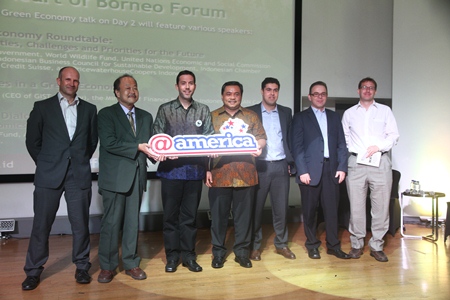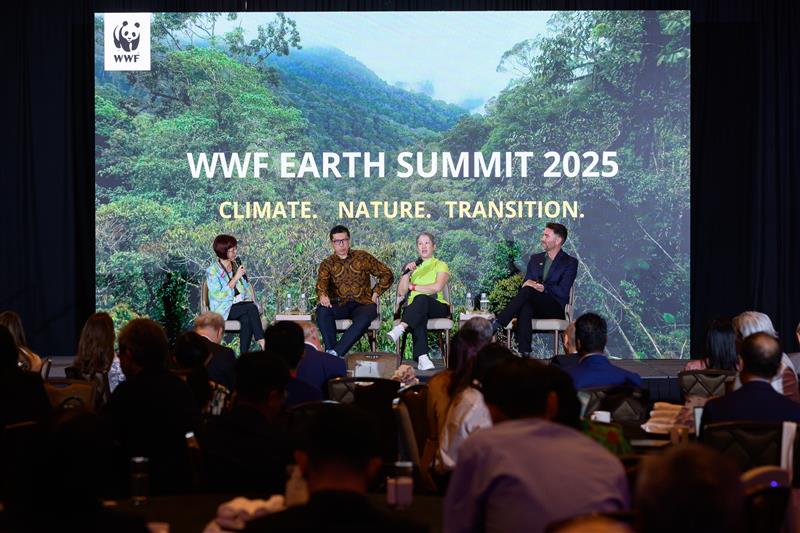‘Pathways to a sustainable future’ was the key theme of the Heart of Borneo Forum’s Green Economy Roundtable, co-hosted by the Association of Chartered Certified Accountants (ACCA). Bringing policy, business and investment perspectives together, the Roundtable explored opportunities, challenges and priorities for creating that future.
“The ‘green race’ is on,” said Rob Evans, Technical Advisor, Sustainability and Climate Change with PricewaterhouseCoopers Indonesia.
He said businesses are transforming to low carbon economies and becoming leading suppliers of technology and solutions, creating a market in excess of US$25 billion and growing. Sustainable business is smart business and the Heart of Borneo provides an excellent example of these principles in action.
With definitions of green economy shifting from what it is, to how it is measured, accounting firms have an increasing role to play as organisations seek to understand their environmental and social impacts and predict the changes resulting from policy implementation.
Opportunities for action
As a country seen as one of the frontrunners in the transition to a green economy, Indonesia is undergoing major social, environmental and economic transformations which are creating a range of opportunities for financing and business action.
Some of the key opportunities covered in the session focused on the wealth of experience in the region and increasing government and business leadership on green growth, particularly in Indonesia and Malaysia – and especially in the context of the Forum, in the Heart of Borneo.
Challenges
From a policy perspective, sound social policy and fundamental changes in both visible structure (e.g. physical) and invisible structure (e.g. fiscal policies, governance and lifestyles) are required before the shift towards green growth can occur.
For business, key challenges include relationship building – bridging a ‘trust gap’ between business and stakeholders – and developing a collective vision. Businesses also need to focus on developing their business strategies as they often undervalue long term trends.
Investors need to consider the amount of revenue and distribution of profit by extractive industries as well as how detailed spatial planning is by the government. This is countered by corporate behaviour being influenced by market/consumer behaviour on demand and maintaining sustainable supply chain resources.
Gordon Hewitt, ACCA’s London based, Sustainability Advisor, spoke at the round-table noting that a key challenge for Indonesia was the implementing of national strategies at local level.
In addition, Indonesia had set some very aggressive growth targets, along with some very aggressive sustainability targets, so a balance needed to be struck.
“Fundamental changes need to take place to the way in which the economy operates, which will require new business models and investment strategies. Accountants will need to be aware of the key trends impacting their clients and offer advice accordingly,” he said.
Priorities
The Roundtable highlighted a number of key steps towards a sustainable future:
- changing resource use trends
- maximising investment in people
- developing a fruitful and sustainable engagement with the business community
- finding new growth models in Indonesia to influence public policy
- collective efforts and common vision.
Green business sense
Credit Suisse is playing a key role in the transition to a green economy as both leader and actor. An overview of how sustainability has been integrated both internally and externally into the organisation was provided by Ben Ridley, Regional Head of Sustainability Affairs for Asia Pacific. “Sustainability makes good business sense – it delivers resource and cost savings, supports risk management, enhances business opportunities and improves stakeholder expectations”, he said. “Credit Suisse views sustainability as a business opportunity – it is good for the environment, society and business.”















